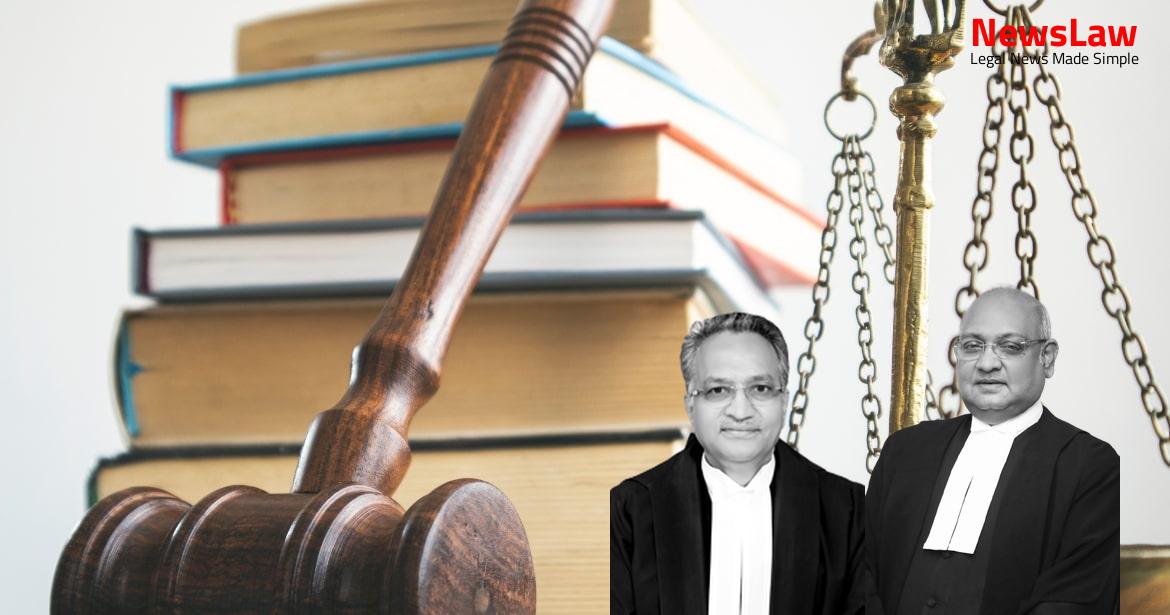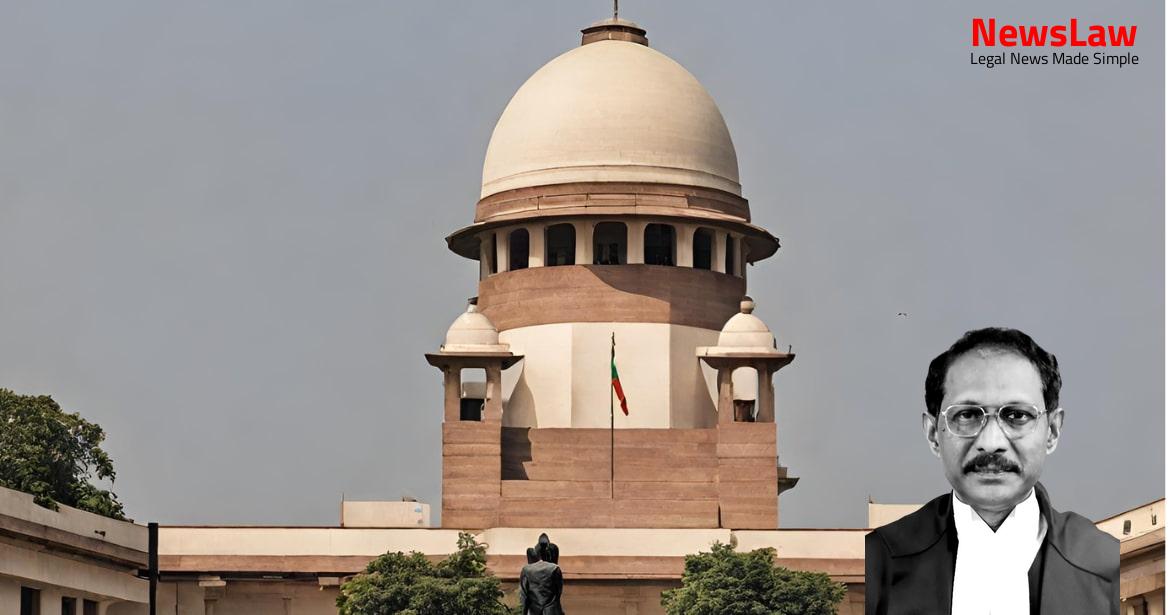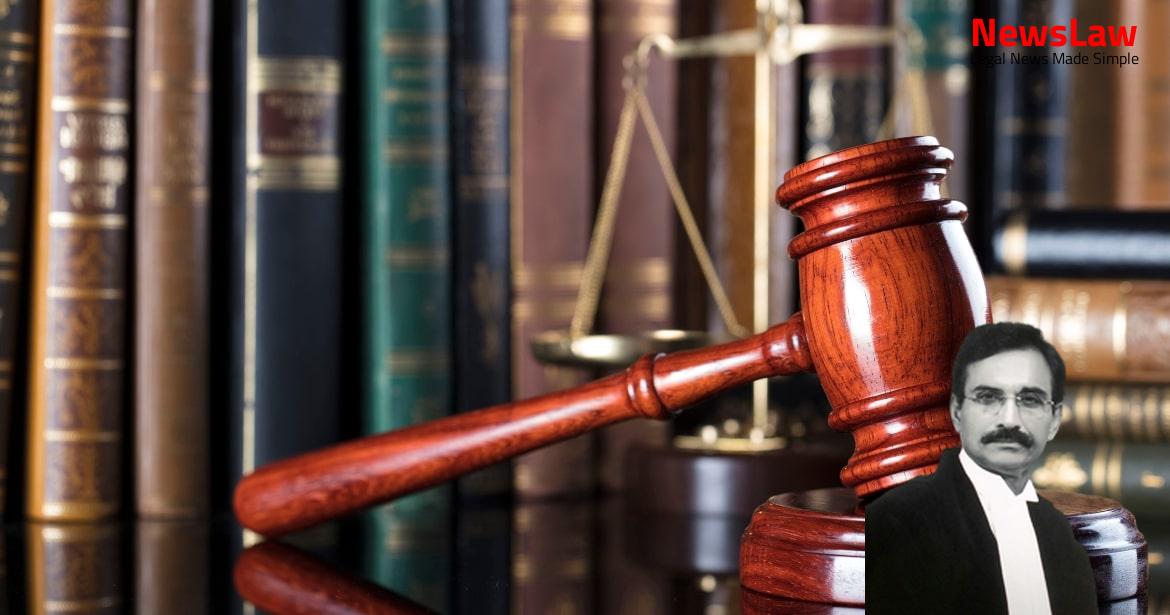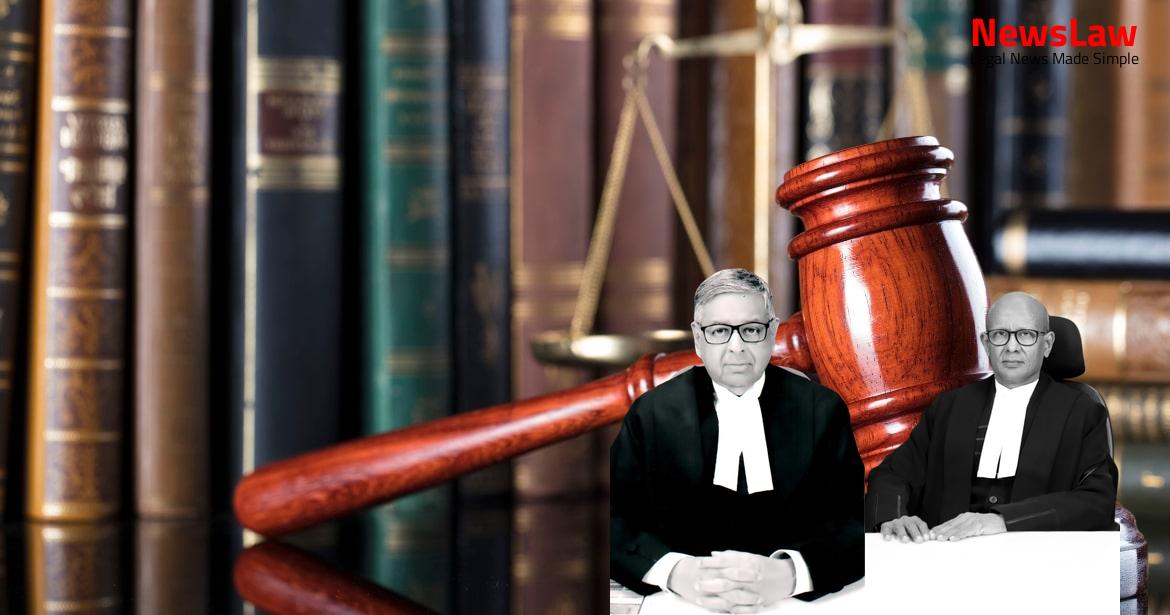In the realm of probate law, the court’s meticulous analysis of suspicious circumstances plays a pivotal role in determining the validity of contested Wills. This case delves deep into the legal intricacies surrounding the execution of a Will, emphasizing the importance of removing all doubts and suspicions to ensure justice prevails. Let’s explore the court’s approach to scrutinizing contested Wills and the burden of proof in probate proceedings.
Facts
- The respondent No 1 attempted to put forward a direct contest of the petition seeking probate and moved an application for further cross-examination of the appellant.
- The property involved in the dispute had a history of transfers from the original owner, father of the contesting parties.
- The contested Will aimed at making provisions for the residence of the elder and widowed daughter of the testatrix.
- Various witnesses, including attesting witnesses, were examined to provide their accounts of the events surrounding the execution of the Will.
- The relations between the appellant, respondent No 1, and respondent No 2 had complexities, including discord and strained relations mentioned in the testimonies.
- The Trial Court dealt with applications from the respondents regarding further cross-examination and objections to the petition seeking probate, leading to differing outcomes.
- The immovable property subject to bequeath and dispute was detailed with its address, dimensions, and past dealings.
- The mother testatrix was described as not having high educational qualifications, and relations between the family members were highlighted in the evidence presented.
- The trial proceedings involved a mix of testimonies from witnesses, respondents, and the appellant regarding the execution of the Will and the familial relationships.
Also Read: Limitation Laws in Insolvency Proceedings
Issue
- The Trial Court framed issues to determine the validity of the Will dated 20-5-2003 of Smt. Amarjeet Mamik.
- The appellant and attesting witnesses testified in support of the contested Will.
- Documentary evidence included the contested Will marked as Ex. PW1/H.
Also Read: Interpretation of Tax Incentive Provision
Arguments
- Suspicion permits the Court to imagine doubtful facets of a case in testamentary jurisdiction.
- Various circumstances including manner of making the Will, contradictions in witness statements, and suspicious findings have been considered in impugned judgments.
- The Will’s sanctity is not solely based on handwritten portions.
- The probate proceeding is a matter of the Court’s conscience, requiring removal of all suspicious circumstances.
- Filing or non-filing of written statements by any party is insignificant in probate proceedings.
- The appellant’s different stand on the third page of the Will, as found in written arguments filed in the High Court, is noted.
- The existence of a third page to the Will is contested by the appellant’s arguments.
- The overall assessment of the Court based on close scrutiny of unusual features and circumstances weighs in determining the validity of the Will.
- Interlineations in the Will may indicate additions made post-execution, weakening the propounder’s case.
- The appellant has argued that the suspicious circumstances surrounding the Will in question have not been adequately explained by the respondents.
- The appellant has pointed out inconsistencies in the testimonies of the witnesses and questioned the manner of writing and executing the document.
- The appellant has emphasized the importance of satisfying the requirements of Section 63 of the Succession Act for the due execution of a Will.
- The appellant has contended that the respondent No.1, being the elder daughter of the testatrix, has the right to contest the Will.
- The appellant has referred to various legal provisions and decisions to support her argument that the Will in question is genuine.
- The appellant has raised doubts about the standing and stance of the respondents in questioning the Will.
Also Read: Interpretation of Sales Tax Reimbursement in Government Contracts
Analysis
- The propounder of a Will has the burden of proving its authenticity, with testamentary capacity and the testator’s signature being mandatory requirements.
- In cases where there are suspicious circumstances surrounding the Will’s execution, the propounder must explain and remove these suspicions to the court’s satisfaction.
- Even if a Will seems unnatural by cutting off or reducing the share of near relations, if suspicions are dispelled, the court must still give effect to the Will.
- The onus of proving the Will shifts to the propounder to provide clear evidence if they have benefited substantially from the Will’s execution.
- Provisions in legal rules do not demand blind adherence but require the court to exercise judgment based on the evidence presented.
- Requisite pleadings and evidence are essential in cases where suspicious circumstances exist, and the propounder or caveator bears the burden of proof accordingly.
- The court’s approach in evaluating a Will should be open, vigilant, and circumspect, considering all evidence before making a judgment.
- Detailed analysis, attestation requirements under the law, and removal of all legitimate suspicions are crucial for the court to accept a Will as legitimate.
- Section 61 of the Succession Act states that a Will obtained by fraud, coercion, or importunity is void.
- Section 63 requires the testator to sign the Will or have it signed by another person in their presence and direction, with the intention of giving effect to the Will.
- Extrinsic evidence is inadmissible in case of patent ambiguity or deficiency in the Will as per Section 81 of the Succession Act.
- A Will or bequest void for uncertainty under Section 89 of the Succession Act.
- Section 59 allows every person of sound mind to dispose of their property by Will, with specific rules for execution.
- The material findings of the Trial Court and the High Court support the conclusion that the testatrix did not execute the document as her Will with full understanding.
- The appeal is dismissed based on these findings.
- The appellant showed lack of forthrightness during the proceedings.
- Costs are to be borne by the appellant due to the dismissal of the appeal.
- There are doubts about whether the document truly represented the last wishes of the testatrix regarding the succession of her estate.
Decision
- The testator is giving, devising, and bequeathing her entire share in the immovable property to her youngest daughter, Mrs. Kavita Kanwar.
- Mrs. Kavita Kanwar is directed to either construct a residential facility on the terrace for her elder daughter, Mrs. Pamela Mehta, or demolish the building and become the sole owner of the entire new construction except for a specified portion for Mrs. Pamela Mehta.
- Any future assets acquired by the testator will devolve upon Mrs. Kavita Kanwar.
- The testator revokes any previous wills or codicils made.
- The costs of the appeal are quantified at Rs. 50,000 and to be divided equally between respondents No 1 and No 2.
- The testator leaves the credit balance in her bank accounts to her son, Col. Prithivijit Mamik, clarifying that he will not inherit any of her immovable assets.
Case Title: KAVITA KANWAR Vs. MRS. PAMELA MEHTA (2020 INSC 397)
Case Number: C.A. No.-003688-003688 / 2017



